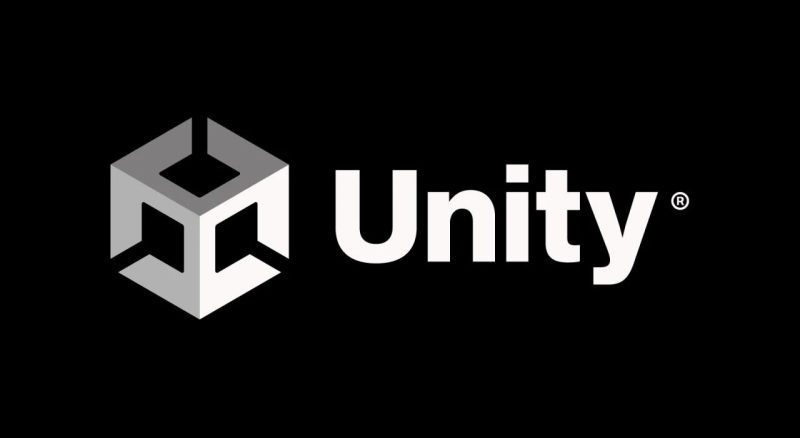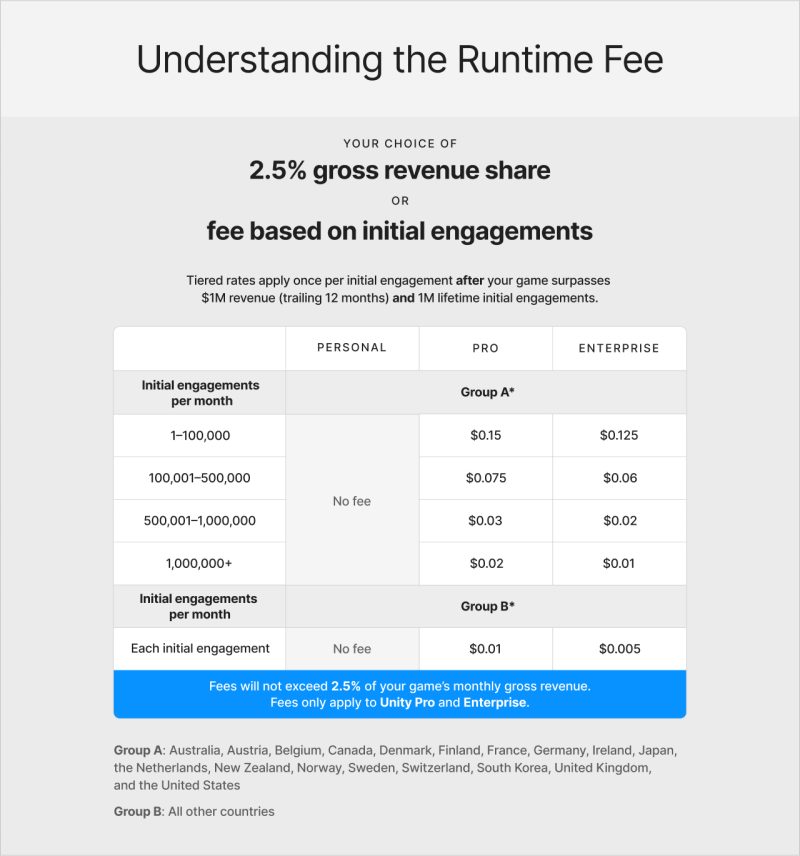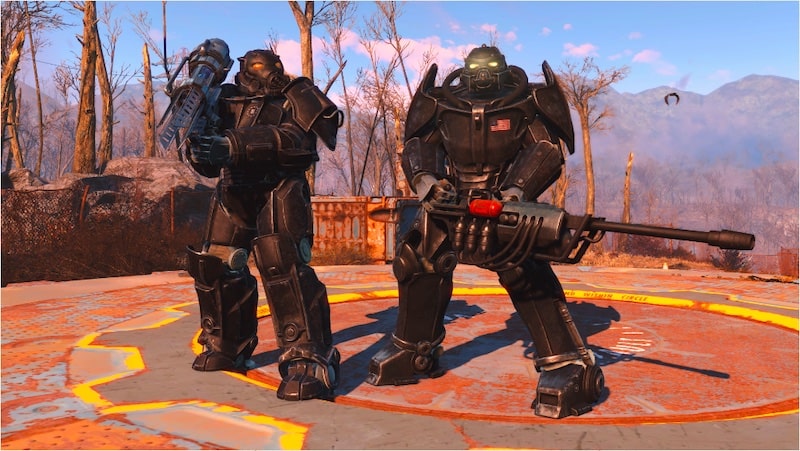Unity Removes Runtime Fee For Entry Level Users, Fee Will Now Only Effect Games Made With The Next Version Of Unity Launching In 2024

Unity has been doing some major backflips in the last week since it announced a new Runtime Fee policy that would charge developers a fee for every copy of their game that was installed past a certain threshold.
That did not go over well with developers at all, and across the industry studios collectively fought back against a fee that wasn’t just a raise in service costs, but an inherently new business structure developers had with Unity.
On Friday, March Whitten, lead of Unity Create which also oversees the engine and editor teams published an “open letter” to the Unity community, in which he directly apologized for how Unity rolled out its new policy, and announced a myriad of changes.
Chiefly, the Runtime Fee will now no longer apply to any games built on Unity’s entry level service model, Unity Personal, and the Runtime Fee will now only go into effect for games built on “the next LTS (Long-Term Support) version of Unity shipping in 2024 and beyond.”
This means that any games built on any current or older versions of Unity, will not be subjugated to the Runtime Fee, and developers everywhere can breathe a sigh of relief for that.
Also, the Runtime Fee will only apply to the first “engagement” players have with a game, not installs, and studios will have a choice of being charged a 2.5% revenue share or whatever amount is tallied up based on engagements.
In either case, the developers will “self-report” what they owe to Unity, and according to Whitten, “you will always be billed the lesser amount.”
Whitten then ends with the news that he and Jason Weimann will be present for a “live fireside chat” beginning at 1pm PT / 4pm ET / 9pm BST, where he and Weimann will take developer questions as they come in.
All this is fine and well, and definitely an improvement compared to what the Runtime Fee looked like when it was first announced. It’s still a curious thing though as to how Unity got here in the first place.
Developers across the industry were all quick to point out that any developer working within Unity could have told them that this policy as it was released would not only be unpopular, but actively detrimental to the industry and if rolled out in that state could cause studios to close from overwhelming fees when their biggest crime was having a popular game made on Unity.
It makes the words Whitten begins with feel all the more hollow, and there’s a small wonder if this was how Unity’s executives really expected things to go, and this version of the policy was always in the back pocket.
Perhaps that’s conspiratorially pessimistic, but its more believable than the thought that Unity couldn’t have seen the response it got coming.
“I want to start with this: I am sorry. We should have spoken with more of you and we should have incorporated more of your feedback before announcing our new Runtime Fee policy. Our goal with this policy is to ensure we can continue to support you today and tomorrow, and keep deeply investing in our game engine.
You [the Unity community] are what makes Unity great, and we know we need to listen, and work hard to earn your trust. We have heard your concerns, and we are making changes in the policy to address them.”
For all of Whitten’s words and these changes, Unity changing its terms of service after the fact to make the Runtime Fee less legally vulnerable, and multiple Unity executives, including chief executive officer John Riccitiello selling thousands of shares a week before the announcement hit will now always stick in the mind of developers when it comes to granting Unity any trust.
And since the fee will now only apply to games made on the next version of Unity that arrives in 2024, it’ll be curious to see if any developers stick with Unity for any future projects.
Source – [Unity]





